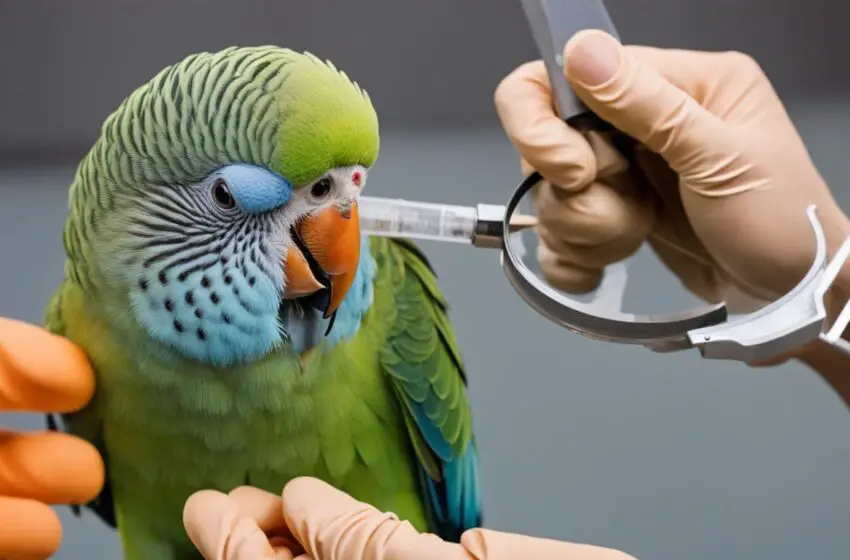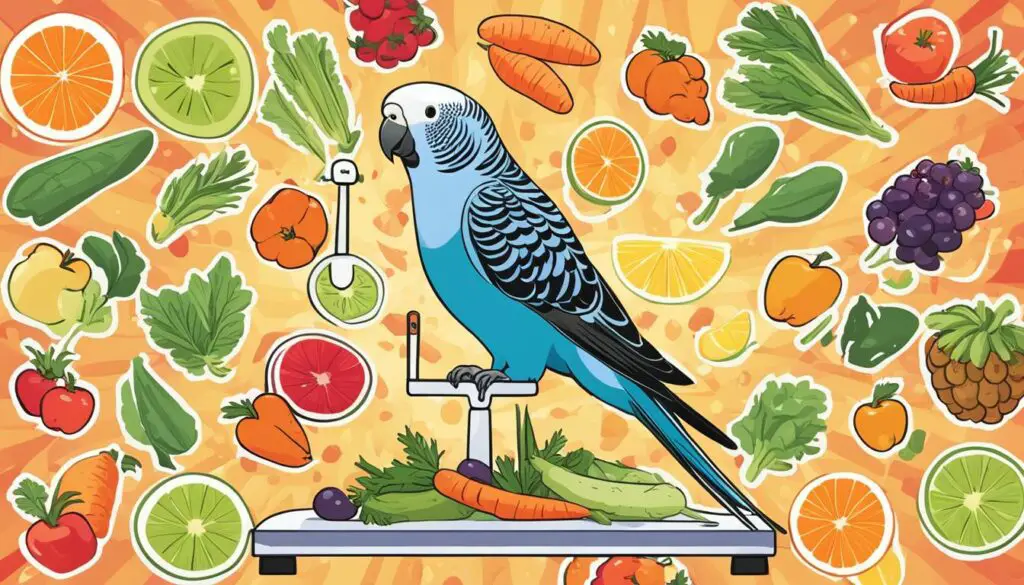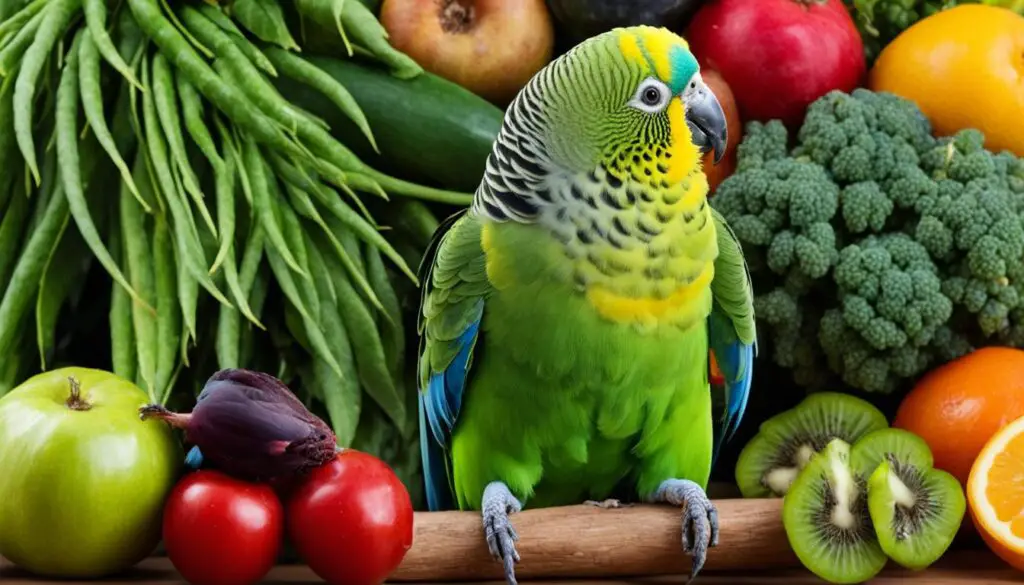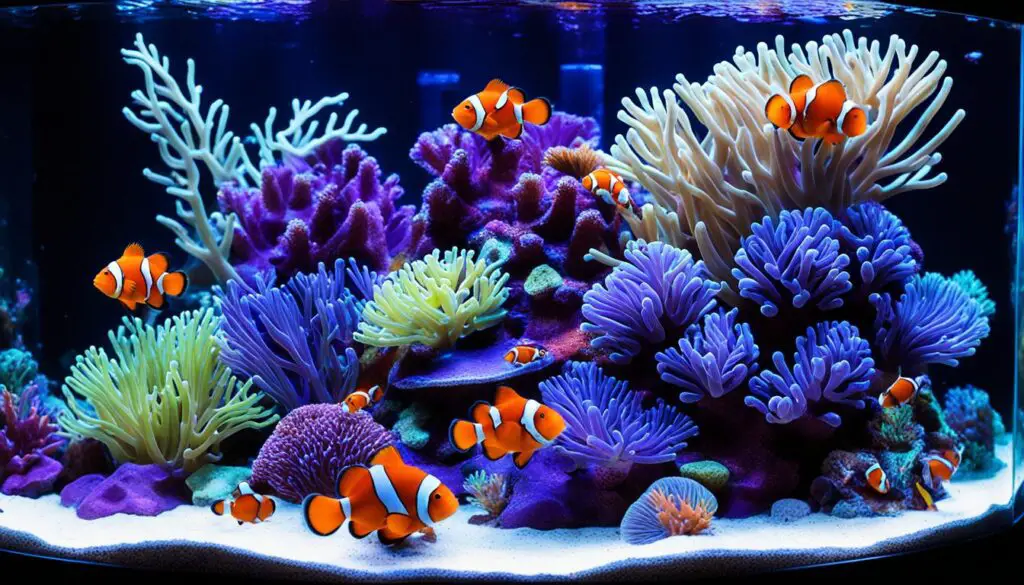Routine Health Checks for Your Parakeet

Welcome to my article on routine health checks for your parakeet. As a responsible owner, ensuring the health and well-being of your feathered friend is of utmost importance. By implementing a regular health check routine, you can detect any potential issues early on and provide timely care, thus ensuring a long and happy life for your parakeet.
Key Takeaways:
- Regular health checks are crucial for maintaining your parakeet’s well-being
- Implement a routine physical health check for your parakeet
- Monitor your parakeet’s respiratory health for any signs of difficulty
- Ensure a healthy digestive system by observing droppings and providing a balanced diet
- Pay attention to your parakeet’s mental and emotional health through interaction and enrichment
Stay tuned as I guide you through each step of the health check process for your beloved parakeet.
Factors Affecting Parakeet Health
Ensuring the health of your parakeet requires consideration of several factors. By addressing these factors, you can prevent potential health issues and provide the best care for your feathered friend.
Diet and Nutrition: Proper nutrition is essential for maintaining your parakeet’s health. Provide a well-balanced diet that includes fresh fruits, vegetables, grains, and high-quality parakeet pellets. Avoid feeding your parakeet toxic or harmful foods that could compromise their well-being.
Exercise: Regular exercise is vital for keeping your parakeet physically active and healthy. Encourage daily activities that promote movement, such as flying around in a safe and spacious area. Provide toys and perches that encourage climbing, swinging, and playing, stimulating both their physical and mental well-being.
Environmental Conditions: Creating a clean and safe living environment is crucial for your parakeet’s health. Maintain proper temperature and humidity levels in their habitat, avoid exposing them to drafts or extreme temperatures, and ensure good ventilation. Regularly clean their cage and accessories to prevent the buildup of bacteria or harmful substances.
Proper Hygiene: Maintaining proper hygiene is essential for preventing health issues in your parakeet. Clean their food and water dishes daily, replace bedding regularly, and provide regular grooming sessions. Trim their nails, beak, and feathers as needed to prevent complications and discomfort.
Ensuring Parakeet Health through Careful Consideration
“By providing a balanced diet, regular exercise, a safe living environment, and proper hygiene, you can promote the overall health and well-being of your parakeet.”
By addressing these factors and incorporating them into your parakeet’s daily care routine, you can ensure their optimal health and prevent potential health issues. Remember that each parakeet is unique, so pay attention to their specific needs and consult with a qualified avian veterinarian for personalized advice and guidance.
Next, we will dive deeper into the specific physical health checks you can perform to monitor your parakeet’s well-being. These regular examinations will help you detect any potential issues early and take appropriate measures to maintain their health.
Physical Health Check
A physical health check is an essential part of maintaining your parakeet’s well-being. By regularly examining your parakeet’s body, you can detect any signs of illness or abnormalities early on, ensuring timely veterinary care if needed. Below is a comprehensive guide on performing a thorough physical health check for your feathered friend.
Feathers
- Inspect the feathers for any signs of abnormal loss, such as bald patches or excessive molting.
- Look for any signs of discoloration, lumps, or lesions on the feathers.
- Ensure that the feathers are clean and well-groomed.
Beak
- Check the beak for any cracks, overgrowth, or misalignment.
- Ensure that the beak is of the appropriate length and shape for your parakeet’s species.
Eyes, Ears, Nose
- Inspect the eyes for any discharge, redness, or cloudiness.
- Look for any signs of ear infection, such as discharge or head shaking.
- Check the nares (tiny openings at the base of the beak) for any blockages or discharge.
Legs
- Observe the legs for any signs of swelling, scaly skin, or abnormal growth.
- Check the grip strength of your parakeet’s feet.
Vent
- Examine the vent area for any signs of discharge, swelling, or staining.
- Ensure that the vent is clean and free from any fecal matter buildup.
If you notice any concerning symptoms during the physical health check, such as feather loss, abnormal growths, or behavioral changes, it is important to seek professional advice from a qualified avian veterinarian. They will be able to perform a more comprehensive examination and provide appropriate treatment if necessary.
Remember, regular physical health checks are instrumental in ensuring the overall well-being of your parakeet. By staying proactive and vigilant in monitoring your pet’s health, you can provide them with the best possible care.
Respiratory Health Check
Parakeets are known to be susceptible to respiratory infections, making it vital for parakeet owners to monitor their feathered friends’ respiratory health closely. By observing their breathing patterns, you can detect any signs of difficulty, wheezing, or coughing that may indicate potential respiratory problems.
One of the essential steps in ensuring your parakeet’s respiratory health is to provide a clean and well-ventilated living area. A well-ventilated environment helps minimize the buildup of airborne irritants that can trigger respiratory issues. Avoid exposing your parakeet to potential respiratory irritants such as cigarette smoke, strong chemical odors, or dusty environments.
Regular cleaning of their cage and accessories, including perches and toys, helps maintain a hygienic living space and reduces the risk of respiratory infections. It is important to regularly remove droppings, feathers, and any debris that may accumulate in the cage.
Additionally, proper humidity levels are crucial for your parakeet’s respiratory health. Parakeets require a moderate level of humidity to prevent their respiratory passages from becoming dry. Maintaining humidity levels within the recommended range (around 40-60%) can help promote optimal respiratory function.
Ensuring your parakeet receives a nutritious diet also plays a significant role in supporting their respiratory health. A well-balanced diet, including fresh fruits and vegetables, high-quality pellets, and occasional treats, helps boost their immune system and overall well-being, reducing the likelihood of respiratory infections.
If you notice any unusual respiratory symptoms or suspect a respiratory infection, it is crucial to consult a qualified avian veterinarian promptly. They will be able to conduct a thorough examination, provide an accurate diagnosis, and recommend appropriate treatment options.
Remember, early detection and proactive care are essential for maintaining your parakeet’s respiratory health. Keep a watchful eye on their breathing and provide them with a clean, well-ventilated environment to ensure their well-being.
Digestive Health Check
Maintaining a healthy digestive system is essential for your parakeet’s overall well-being. Proper digestion ensures that your feathered friend can absorb vital nutrients and eliminate waste effectively. To ensure your parakeet’s digestive health, it is crucial to monitor their droppings regularly for any changes in consistency, color, or frequency. Any abnormalities in their droppings may indicate digestive issues that require attention.
Providing your parakeet with a well-balanced diet is the cornerstone of maintaining their digestive health. A nutritious diet should include fresh fruits, vegetables, grains, and high-quality parakeet pellets. These foods provide the necessary nutrients, vitamins, and minerals that support optimal digestion and overall health.
Avoid feeding your parakeet any harmful or toxic foods, as they can disrupt their digestive system. Examples of foods to avoid include avocado, chocolate, caffeine, alcohol, and foods high in fat or sugar. Additionally, make sure to regularly clean their food and water containers to prevent bacterial growth, which can cause digestive issues.
Dietary Tips for Parakeet Digestive Health
- Offer a variety of fresh fruits and vegetables to provide essential vitamins and fiber.
- Rotate different types of seeds, ensuring a balance of nutrients.
- Include high-quality parakeet pellets in their diet as a source of essential proteins and minerals.
- Provide clean, fresh water at all times to prevent dehydration and aid digestion.
By implementing a healthy diet and regularly monitoring your parakeet’s droppings, you can ensure their digestive system remains in optimal condition. Remember, a happy and healthy parakeet starts with a well-functioning digestive system.
| Digestive System Maintenance | Why It’s Important |
|---|---|
| Monitor droppings regularly | Identify and address digestive issues early on |
| Provide a balanced diet | Nourish the digestive system with essential nutrients |
| Avoid harmful or toxic foods | Prevent digestive disorders and potential health risks |
| Clean food and water containers regularly | Prevent bacterial growth and maintain good digestive health |

Monitoring your parakeet’s digestive health is an essential aspect of their overall well-being. By taking proactive measures to maintain a healthy digestive system through proper diet and regular observation, you can ensure that your feathered friend enjoys a long, happy, and healthy life.
Mental and Emotional Health Check
To ensure the overall well-being of your parakeet, it’s important to pay attention to their mental and emotional health. Parakeets are social creatures that thrive on mental stimulation and social interaction. By monitoring their behavior and providing the right environment, toys, and interaction, you can promote their positive mental and emotional state.
Observe your parakeet’s behavior closely for any signs of stress, fear, or aggression. These can indicate underlying mental health issues. Common signs include excessive feather plucking, biting, or excessive vocalization. If you notice any concerning changes in behavior, it’s essential to address them promptly.
One way to promote mental and emotional well-being is by providing your parakeet with plenty of toys and perches. Toys that encourage mental engagement, such as puzzle toys or foraging toys, can keep them entertained and mentally stimulated. Additionally, offering a variety of perches with different textures and sizes can provide them with a sense of novelty and exploration.
Exercise and Playtime
Regular exercise is crucial for maintaining your parakeet’s mental and emotional health. Providing opportunities for physical activity and play can help them release energy and stimulate their minds.
Ensure that your parakeet has enough space to fly and stretch their wings. Consider setting up a play area outside of their cage where they can explore and interact with their surroundings. This can be as simple as a designated perch or a small play gym with toys.
Interacting with your parakeet is also important for their emotional well-being. Spend time talking to them, singing, or even whistling tunes. Building a strong bond with your parakeet through positive interactions can have a significant impact on their mental health.
Remember that each parakeet is unique, and their preferences may vary. Pay attention to what activities and interactions your parakeet enjoys the most and adapt to their needs. By focusing on their mental and emotional health, you can ensure that your parakeet leads a happy and fulfilling life.
Preventive Measures and Care Tips
Along with regular health checks, there are several preventive measures and care tips you can follow to keep your parakeet healthy. By implementing these practices, you can ensure your feathered companion’s well-being and minimize the risk of potential health issues.
Maintaining a Clean Living Environment
Creating a clean and hygienic environment is crucial for your parakeet’s health. Regularly clean their cage and accessories, including perches, toys, and food bowls, to prevent the buildup of bacteria or mold. Use bird-safe cleaning products and avoid strong chemicals that could harm your pet. Additionally, provide fresh bedding material and change it regularly to maintain cleanliness.
Providing a Balanced Diet
A balanced diet is essential for meeting your parakeet’s nutritional needs. Offer a variety of foods, including high-quality parakeet pellets, fresh fruits, vegetables, and occasional treats. Avoid feeding them toxic or harmful foods such as chocolate, caffeine, avocado, alcohol, or onions. Consult with your avian veterinarian to create a suitable diet plan for your parakeet’s specific needs.
Regular Grooming
Grooming plays a vital role in maintaining your parakeet’s overall health. Trim their nails regularly to prevent overgrowth, which can be uncomfortable or lead to injury. You can also gently file their beak to keep it in good condition. Additionally, provide opportunities for bathing, either through a shallow dish of water or a gentle misting with a spray bottle. This helps keep their feathers clean and ensures proper grooming.
Scheduling Regular Visits to the Avian Veterinarian
Regular visits to an avian veterinarian are crucial for your parakeet’s overall health maintenance. These professionals can conduct comprehensive check-ups, including physical exams, weight monitoring, and necessary vaccinations. In case of any emerging health concerns, they can provide prompt diagnosis and appropriate treatment. Be sure to follow their advice and recommendations for ongoing care.
Observing Changes in Behavior or Health
Stay observant of your parakeet’s behavior and health on a daily basis. Changes in appetite, energy levels, vocalizations, feather appearance, or droppings could indicate a potential health issue. If you notice any abnormalities, consult your avian veterinarian for further guidance and assistance. Early detection and intervention can prevent more serious health complications.
By implementing these preventive measures and care tips, you can ensure the well-being and longevity of your beloved parakeet. Regular health checks, along with a clean living environment, balanced diet, regular grooming, and professional veterinary care, are key to maintaining a happy and healthy life for your feathered friend.

Conclusion
By implementing a routine health check routine for your parakeet and following the necessary preventive care measures, you can ensure the well-being and longevity of your feathered companion. Regular monitoring, timely veterinary care, and a nurturing environment are key to maintaining the health and happiness of your parakeet.
Remember to always prioritize your parakeet’s well-being and provide the necessary care it deserves. Parakeet health maintenance is a crucial aspect of responsible pet ownership. By conducting routine health checks, you can identify any potential issues early on and take appropriate action to address them. Your parakeet’s well-being depends on your dedication to their health and happiness.
In addition to routine health checks, make sure to provide your parakeet with a balanced diet, ample exercise opportunities, and mental stimulation. Create an enriching environment that meets their natural needs and instincts.
With proper care and attention, you can enjoy a happy and healthy life with your beloved parakeet for years to come.
FAQ
What is a routine health check for a parakeet?
A routine health check for a parakeet is a regular examination of its body to ensure there are no signs of illness or abnormalities. It involves checking its feathers, beak, eyes, ears, nose, legs, and vent.
What factors can affect the health of a parakeet?
Several factors can influence the health of a parakeet, including diet and nutrition, exercise, environmental conditions, and proper hygiene.
How often should I perform a physical health check on my parakeet?
It is recommended to perform a physical health check on your parakeet regularly, at least once a month, to catch any potential issues early.
What should I look for during a physical health check for my parakeet?
During a physical health check for your parakeet, look for signs of feather loss, discharge, swelling, or any unusual behavior.
How can I monitor my parakeet’s respiratory health?
Observe your parakeet’s breathing for any signs of difficulty, wheezing, or coughing. Keep their living area clean and well-ventilated to promote good respiratory health.
How can I maintain my parakeet’s digestive health?
Monitor your parakeet’s droppings for any changes in consistency, color, or frequency. Provide them with a balanced diet that includes fresh fruits, vegetables, grains, and high-quality parakeet pellets.
What should I do to ensure my parakeet’s mental and emotional well-being?
Provide your parakeet with plenty of toys, perches, and opportunities for exercise and play. Interact with your parakeet regularly to foster a strong bond and a positive mental and emotional state.
What are some preventive measures and care tips for maintaining my parakeet’s health?
Some preventive measures and care tips include maintaining a clean living environment, providing a balanced diet, regular grooming, and scheduling regular visits to the avian veterinarian.
How can routine health checks benefit my parakeet?
Routine health checks can help catch any potential health issues early, allowing for timely care and treatment. They contribute to the overall well-being and longevity of your parakeet.



